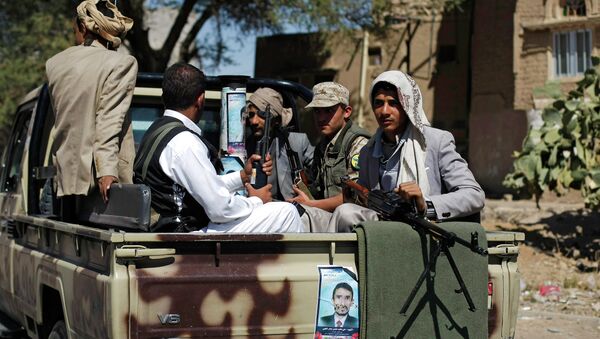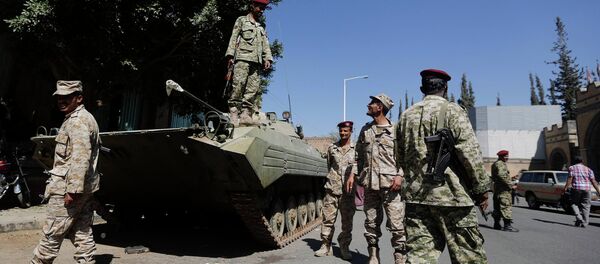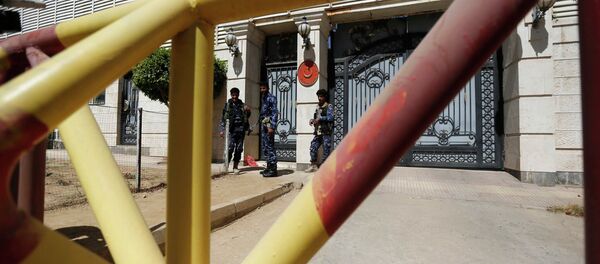Shahir Shahid-Saless, who is based in Canada, explained in a blog post last week on Al-Monitor.com that the Houthis seek to share power in Yemen rather than govern it unilaterally, and as such do not want to add fuel to resistance against them ahead of any prospective negotiations.
"There is a near consensus among Yemen experts that no single tribe or political current can individually govern the country. Although pictures of ayatollahs Khomeini and Khamenei and Hezbollah leader Hassan Nasrallah have been carried by Houthi supporters during demonstrations, in the last year or so, no member of the Houthi political bureau has made any statement praising Iran."
The Houthis are widely suspected to receive financial support from Iran, as well as military training from the Iranian Revolutionary Guard. The Yemeni government in 2013 announced its forces had intercepted a ship from Iran named the Jihan 1, suspected of carrying arms to Houthi insurgents, a claim which Tehran denied.
While it is politically expedient for the Houthis to deny links with Iran, Shahid-Saless explains that the Iranians are more forthright in their moral support for the Houthi rise to power. The government in Tehran regards the Houthis as part of the of the "axis of resistance," led by Iran against Western interests in the Middle East and comprising Iran, Hezbollah in Lebanon and Shiite militants in Iraq and Syria.
A report from the International Crisis Group NGO at the end of January highlighted the necessity for a quick compromise in Yemen, warning of the "very real prospect of territorial fragmentation, economic meltdown and widespread violence if a compromise is not reached soon." The report also highlighted the Houthis "notable success in battling al-Qaeda," though such success has come at the price of the alliance of some Yemeni tribes with the AQAP, in a sectarian alignment against the Houthis.




